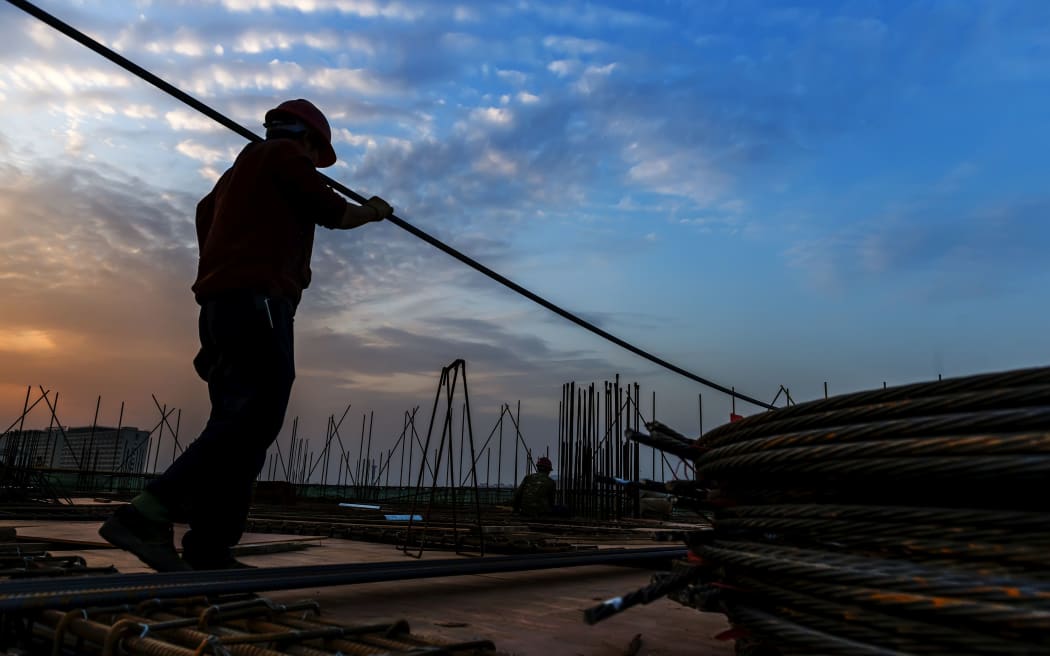 Ten construction workers who helped authorities with a fraud investigation have been asked to leave the country, despite most having full time work and seeking work visas. Photo: 123rf.com
Ten construction workers who helped authorities with a fraud investigation have been asked to leave the country, despite most having full time work and seeking work visas. Photo: 123rf.com
A group of migrants who have been helping an investigation into immigration fraud may soon be forced to leave the country.
The group were some of the 50 Chinese construction workers who claimed a New Zealand-based recruiter had misled them about their pay and working rights.
Last year an arrest warrant was issued for Li Wenshan, also known as Peter Li, who fled New Zealand before charges were laid.
Li still faced charges for immigration fraud.
Meanwhile two other people associated with Li face a trial in December this year.
Ten workers are expected to give evidence in court, claiming they were duped.
But last week, the workers were told by Immigration authorities that they would be expected to leave the country within a month of the trial ending.
Green Party immigration spokesman Ricardo March said the treatment of this group undermined efforts to combat migrant exploitation.
“These workers are not pieces of evidence, they are human beings, and so to put them in a situation where they are treated as expendable once they’re not deemed useful to provide evidence is unjust,” March said.
“And, actually [it] will undermine the government’s intent to create a supportive environment , where workers are able to come forward and participate in processes to hold employers to account.”
March called for the immigration minister to intervene, and to send a strong message that workers holding employers to account would be supported.
One of the men due to give evidence in court, 50-year-old carpenter Sheng Canhong, felt he had been punished for doing the right thing.
“The New Zealand government doesn’t like people who speak up and affect New Zealand’s reputation. Such people are not welcome here,” he said.
Sheng arrived on a work visa in 2018, but was left with no work for the initial months, and was consequently moved to a limited visa to assist with the investigation.
“Because of the work situation, we had no option but to speak up. Think about it, we were in Tauranga for three months without work, we had to pay for food and accommodation, where do we get that money?
“When I came here I only had $200. So I owed people money for the living costs, and could only pay back later when I found work,” he said.
The ten workers had also missed out on the chance to apply for one-off residency.
Many of them had tried to move back onto work visas, but their applications failed despite having full time jobs, and they struggled to understand why.
Unite Union director Mike Treen has assisted the men since 2019 is also called for a pathway to residency for this group.
“We ought to be giving them something to compensate them for the hurt, humiliation and exploitation that they’ve suffered while they’re here,” he said.
Treen said the system of temporary visas had fuelled migrant exploitation and needed to change.
“Immigration New Zealand [INZ] created a system of migrant labour exploitation, and they throw out the people who have helped expose it,” he said.
“Ten percent of workers in New Zealand were on temporary visas, 30 to 40 percent of workers in construction and hospitality and agriculture and horticulture were on temporary visas.”
INZ referred RNZ to the minister for comment on the workers’ situation.
Minister Michael Wood says due to legal and privacy reasons he’s unable to comment on the circumstances of the workers and the case.
Meanwhile, Li Wenshan is still on the loose and it’s uncertain when he will make an appearance in court.
INZ declined to answer questions on whether they’re looking to extradite Li.
An INZ spokesperson said for legal and privacy reasons, they will not make further comment on Li.
